Views : 320
Author : Eileen
Update time : 2025-03-05 19:59:02
Five Steps to Enhance Your Brand’s Sustainability with Eco-Friendly Cosmetic Bag Suppliers
In today's world, where reducing carbon emissions and minimizing waste have become global imperatives, brands face growing pressure to align their operations with sustainable practices. The environmental stakes are high: in 2016, the UK alone sent 15.7 million tonnes of waste to landfills—enough to fill over 174 Wembley stadiums. For businesses, this presents both a challenge and an opportunity to rethink their ecological footprint, starting with often-overlooked tools like promotional products.
Promotional items, when designed with sustainability in mind, can do more than just boost brand visibility—they can embody a company’s commitment to the planet. Rivta, a forward-thinking brand specializing in eco-friendly solutions like biodegradable cutlery, reusable bags, and organic cotton products, exemplifies this approach. By prioritizing materials such as bamboo, recycled plastics, and ethically sourced fabrics, Rivta empowers businesses and individuals to embrace greener lifestyles without sacrificing quality or style.
This article outlines five actionable steps to transform your brand’s sustainability through promotional products.
Step 1: Create Products People Will Love
The foundation of sustainable promotional products lies in their appeal and utility. Items that lack practicality or charm often end up discarded, undermining both marketing efforts and environmental goals. To succeed, brands must craft products that people will use, cherish, and proudly display—extending the life of the item and the visibility of the brand.
Why It Works
Promotional products are powerful marketing tools. According to the AdvertisingSpecialtyInstitute , 85% of people remember the brand behind a promotional item like a shirt or hat. Meanwhile, the PromotionalProductsAssociationlnternationa reports that 89% of consumers have used a promotional product in the past six months, with 79% more likely to do business with the company again. The key? Utility and desirability.
Practical Examples
- Reusable Tote Bags: Durable and stylish, Rivta’s organic cotton totes are perfect for daily use—whether shopping or commuting. Customizable with your logo, they appeal to eco-conscious consumers while reducing single-use plastic waste.
- Recycled Bottles: A sleek, reusable bottle made from recycled materials aligns with wellness trends and sustainability goals, ideal for skincare or commodity brands.
- Unique Touches: For a perfume company, a bamboo-framed fragrance diffuser could double as a chic, sustainable giveaway, merging luxury with eco-friendliness.

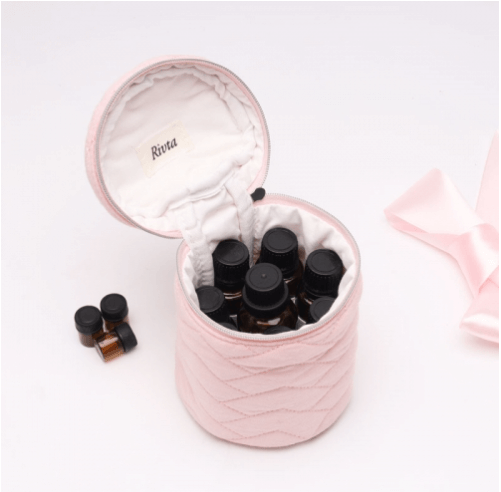
Tailoring to Your Audience
- Mr Bouris (Perfume CEO): A high-end, sustainable accessory like a bamboo fiber jewelry pouch could resonate with luxury clientele.
- Ms Thompson (Skincare Marketing): Organic cotton face towels branded with a natural skincare message reinforce product ethos.
- Ms Aagaard (Commodities Co-founder): A sturdy, recycled plastic notebook appeals to practicality and cost-effectiveness.
By focusing on functionality, durability, and aesthetics, your promotional products become cherished assets rather than landfill fodder, amplifying brand exposure sustainably.
Step 2: Use Recyclable and Biodegradable Materials
The materials you choose define your product’s environmental impact. Switching from virgin plastics to recyclable or biodegradable alternatives is a straightforward yet transformative step toward sustainability. This not only reduces waste but also signals to consumers that your brand prioritizes the planet.
Material Options and Benefits
- Bamboo: A fast-growing, renewable resource (up to 3 feet per day), bamboo requires minimal water and no pesticides. Rivta’s biodegradable cutlery showcases its compostable nature—unlike plastic, which lingers for centuries.
- Recycled Plastics: Recycling one ton of plastic saves 5,774 kilowatt-hours of energy and 16.3 barrels of oil, per the EPA. Rivta’s reusable bags made from recycled bottles divert waste from landfills.
- Organic Cotton: Grown without harmful chemicals, it uses 91% less water than conventional cotton, according to the SoilAssociation. Rivta’s organic cotton products offer a soft, sustainable textile option.

Why It Matters
Consumers notice material choices. A Nielsen survey found that 73% of global consumers would change their habits to reduce environmental impact, favoring brands with eco-friendly materials. Printing the material’s story—e.g., “Made from 5 recycled plastic bottles”—on the product enhances transparency and appeal.
Implementation Tips
- Lifecycle Thinking: Ensure manufacturing and disposal processes are eco-friendly. Rivta’s carbon-neutral shipping complements its material choices.
- Customization: Offer clients like Raquel, Daisy, and Isabel options to select materials that align with their brand values—bamboo for elegance, recycled plastics for practicality.
By adopting these materials, your promotional products become tangible proof of your sustainability commitment, resonating with eco-aware customers.
Step 3: Ensure Ethical Production Practices
Sustainability extends beyond the environment to encompass social responsibility. Ethical production—fair wages, safe conditions, and respect for workers—builds trust and aligns with modern consumer values, making your brand more attractive and credible.
The Ethical Imperative
The manufacturing sector often faces scrutiny for exploitative practices. In some regions, workers earn as little as £4 daily, per industry reports from Vietnam and Cambodia. Ethical alternatives, like Fair Trade certification, ensure fair pay and safe workplaces. Rivta partners with certified manufacturers, emphasizing transparency and accountability across its global supply chain.
Data-Driven Insights
- Consumer Preference: ConeCommunications found that 87% of consumers view companies supporting social or environmental causes more favorably.
- Fair Trade Impact: Certified farmers earn 20-30% more, per FairTradeUSA, boosting community development.
Benefits for Brands
- Reputation: Ethical sourcing mitigates risks of supply chain scandals, protecting your image in a connected world.
- Alignment with SDGs: Practices support UN Sustainable Development Goals like decent work (SDG 8) and responsible production (SDG 12).
Rivta’s Approach
Rivta’s commitment to Fair Trade and ethical labor ensures every product—from bamboo cutlery to organic cotton bags—reflects social responsibility. For Raquel, Daisy, and Isabel, this means promotional items that tell a story of integrity, appealing to customers who value transparency.
Step 4: Educate Others on Sustainability
Promotional products can transcend marketing to become tools for education, inspiring sustainable habits and raising awareness. By embedding eco-messages into your items, you empower consumers to join the sustainability movement.
Creative Strategies
- Informational Tags: Rivta includes tags explaining how products like biodegradable cutlery reduce waste, e.g., “Replaces 500 plastic utensils.”
- QR Codes: Link to your sustainability story or tips—e.g., “Scan to learn how to cut plastic use by 50%.”
- Design Elements: A tote bag with “Say No to Plastic” printed alongside your logo doubles as a call to action.
Real-World Inspiration
Patagonia’s “Worn Wear” initiative encourages repairing clothes to extend their life—a model adaptable to promotional products. Imagine a skincare brand like Daisy’s offering reusable cotton pads with care instructions, reducing waste while promoting natural beauty.
Impact Metrics
- Behavioral Shift: Educated consumers are 66% more likely to buy sustainable products, per Accenture.
- Brand Loyalty: Educational efforts foster connection, with 60% of consumers favoring brands that take environmental stands.
Tailored Applications
- Perfume: A diffuser with a tag on bamboo’s renewability educates luxury buyers.
- Skincare: Face towels with a QR code to eco-tips reinforce natural branding.
- Commodities: A recycled notebook with waste stats appeals to practicality.
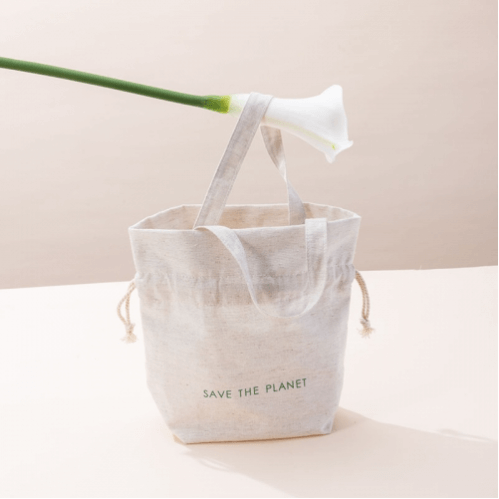
By educating through products, you amplify your brand’s influence and cultivate a sustainability-minded audience.
Step 5: Support Sustainable Manufacturers
Your supply chain is the backbone of your sustainability efforts. Partnering with manufacturers who prioritize eco-friendly practices—locally or globally—ensures your promotional products align with your green goals.
Why It’s Crucial
Sustainable manufacturers use renewable energy, minimize waste, and uphold ethical standards. Rivta collaborates with a global network vetted for certifications like ISO 14001 (environmental management), reducing its carbon footprint while supporting innovation.
Local vs. Global
- Local: Sourcing nearby cuts transport emissions—e.g., UK-made products avoid airfreight’s 0.5 kg CO2 per ton-mile.
- Global: Ethical global partners, like Rivta’s, offer scale and expertise in sustainable materials.
Business Advantages
- Cost Savings: Energy-efficient practices can lower production costs over time.
- Innovation: Collaboration drives new solutions, like biodegradable composites.
Data Point
Accenture notes that 60% of consumers prefer brands with environmental commitments, amplifying the value of sustainable partnerships.
For Your Brand
Supporting sustainable manufacturers completes your eco-journey, from creation to delivery.
Measuring Success and Avoiding Pitfalls
Success Metrics
- Usage: Track product longevity via customer surveys.
- Impact: Calculate waste reduction—e.g., one tote replaces 300 plastic bags.
- Perception: Assess brand recall and eco-credibility.
Pitfalls to Avoid
- Greenwashing: Back claims with evidence, like Rivta’s certifications.
- Quality Drop: Ensure sustainable items match traditional standards.
- Opaque Supply Chains: Share your ethical sourcing story.
Transforming your brand’s sustainability through promotional products is a strategic blend of creativity, responsibility, and partnership. By creating products people love, using recyclable materials, ensuring ethical production, educating consumers, and supporting sustainable manufacturers, you reduce your environmental footprint while enhancing your market position.
Rivta’s eco-solutions—from bamboo cutlery to organic cotton bags—offer a blueprint for brands like yours. For Raquel, Daisy, and Isabel, these steps provide tailored pathways to connect with eco-conscious customers, whether through luxury, natural, or practical offerings.
Start today: audit your promotional strategy and take one step forward. With each sustainable choice, you’re not just promoting your brand—you’re shaping a greener future.
Ready to elevate your brand’s sustainability? Discover Rivta’s eco-friendly promotional products at Rivta'swebsite or contact us for customized solutions that reflect your values.
Related News
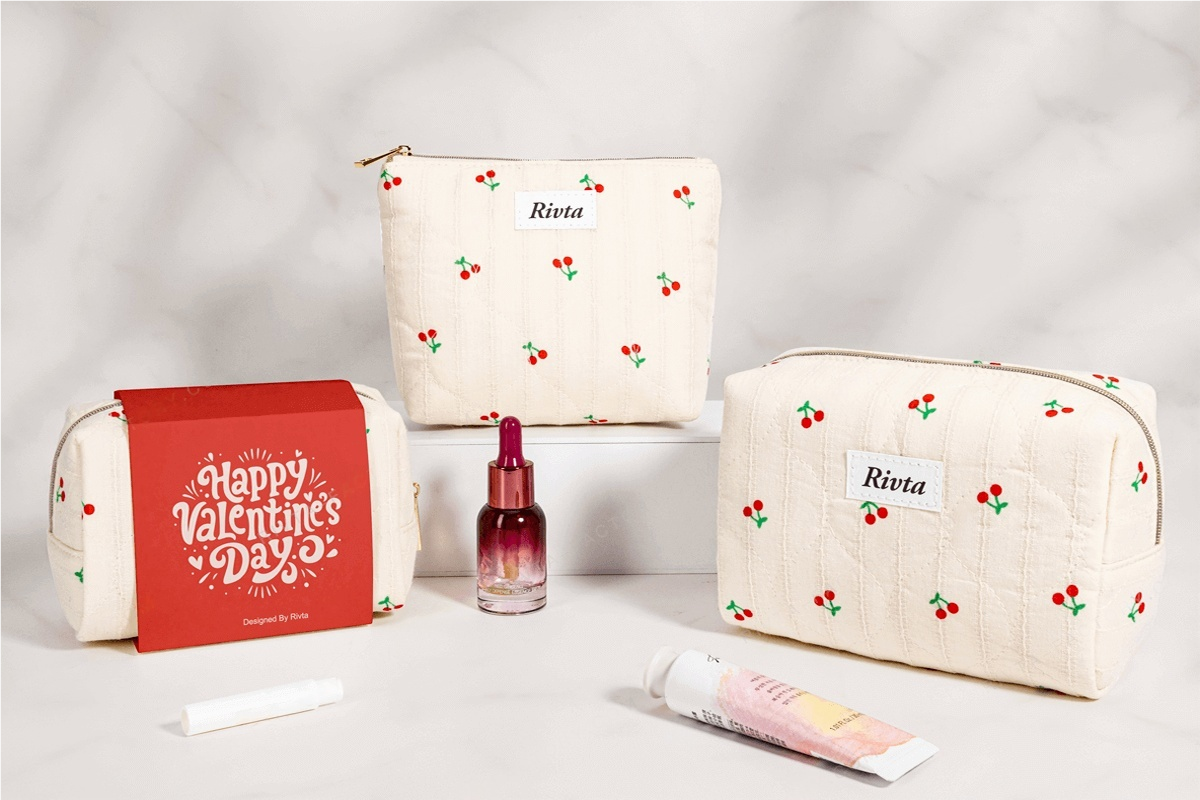
The Ultimate Guide to Finding the Right Cosmetic Bag Supplier in 2025?
Aug .20.2025
Finding a reliable supplier is stressful. You need a partner who can bring your vision to life, but the search is filled with uncertainty and risk.
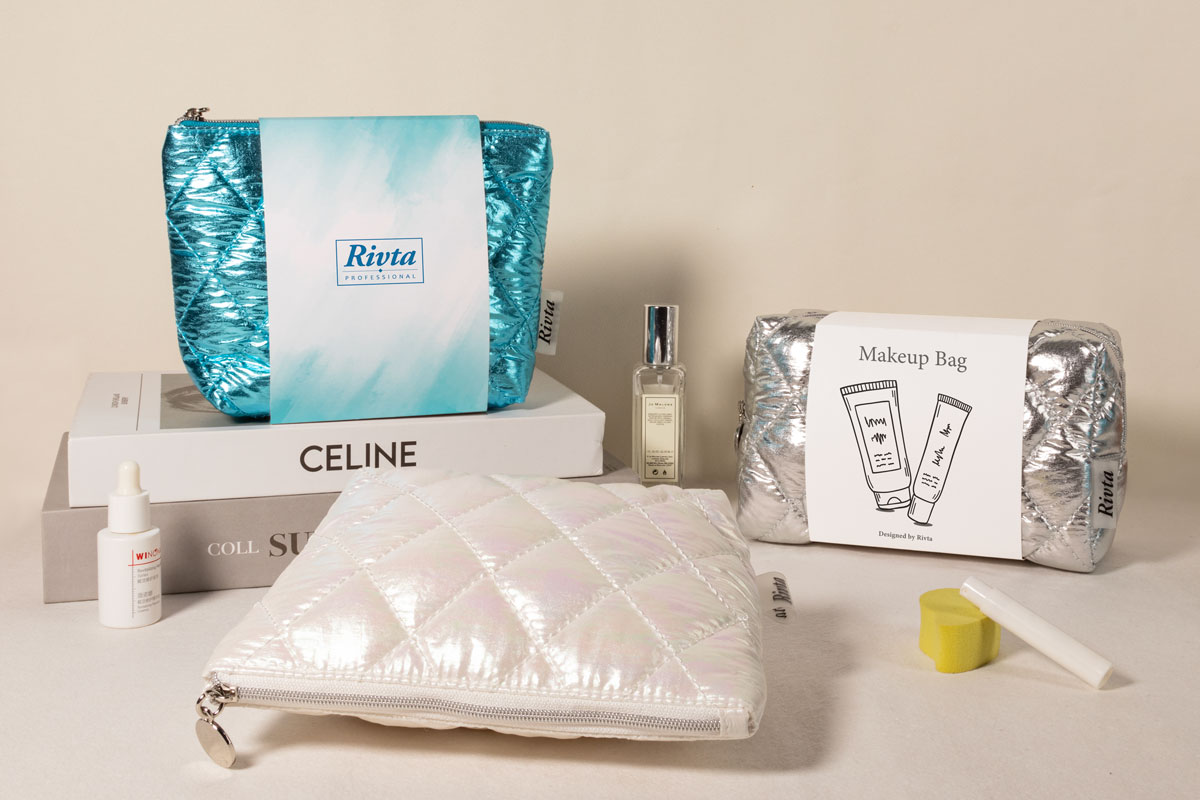
From Design to Delivery: How Do We Manufacture Custom Private Label Cosmetic Bags?
Aug .20.2025
Taking your idea for a cosmetic bag from a simple sketch to a finished product is a complex journey. You worry about getting the details right and avoiding costly mistakes.
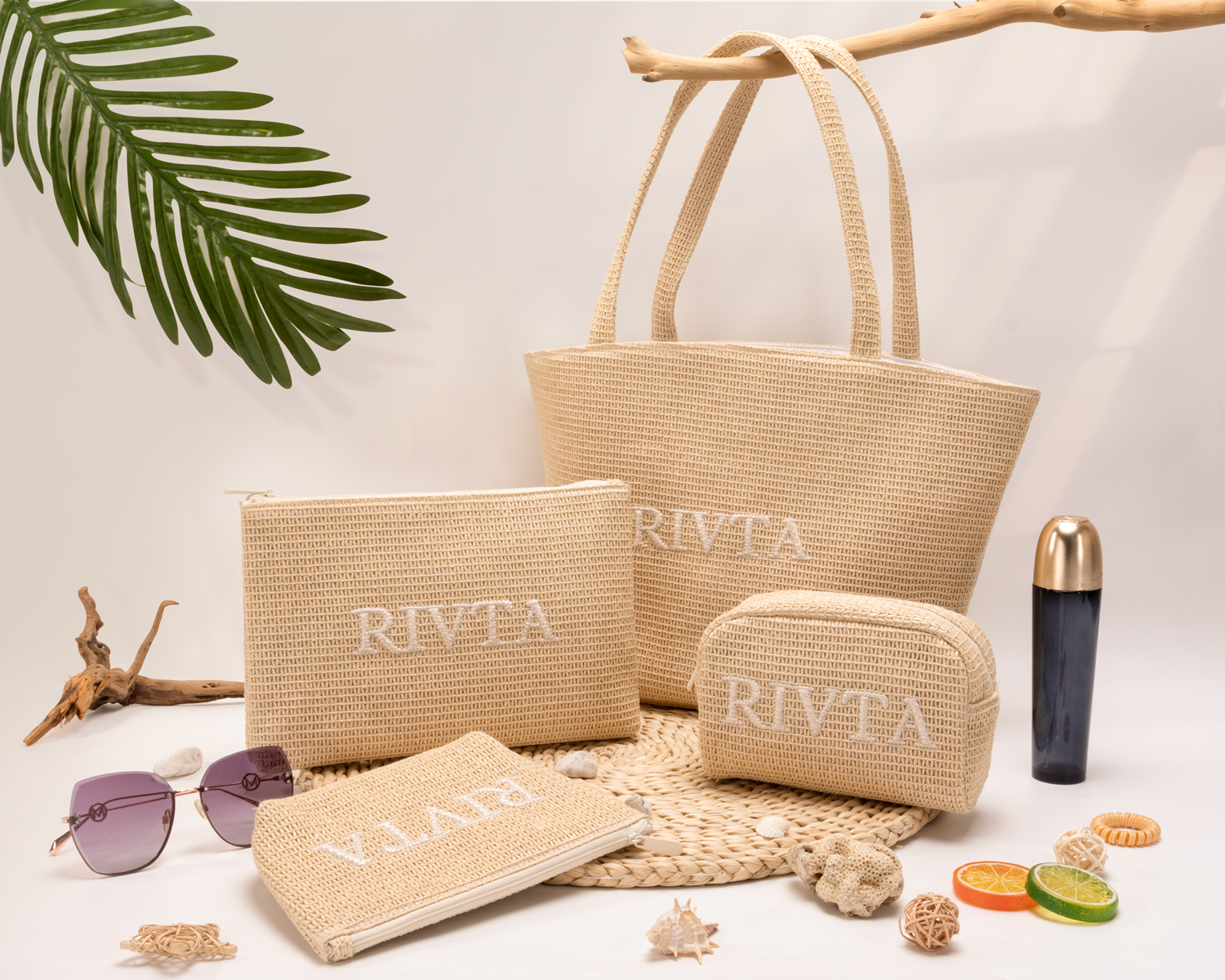
The Ultimate Guide to Sourcing Toilery Bags in Bulk from China (2026)?
Aug .19.2025
Struggling with low profit margins on your products? Sourcing directly from China can slash your costs, but finding a reliable supplier feels overwhelming and risky. You need a partner you can trust to deliver quality products on time.
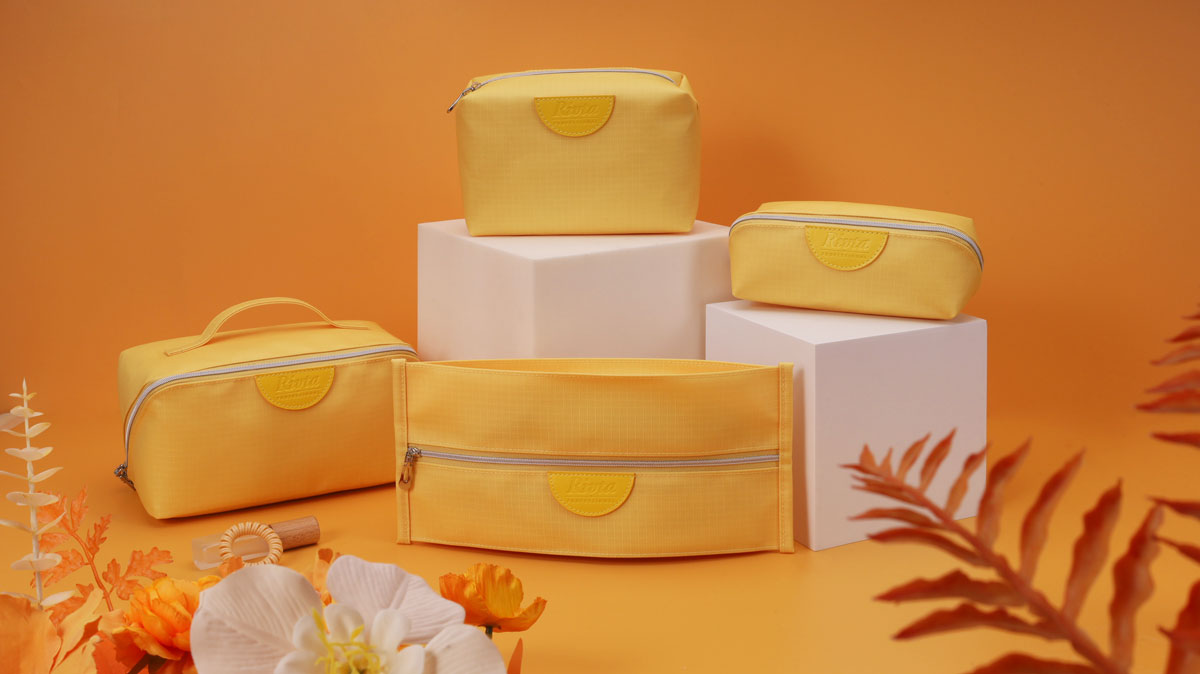
The Ultimate Guide to Designing a Custom MakeupBag with Your Logo
Aug .19.2025
Designing a custom makeup bag feels overwhelming. You face endless choices in materials, printing, and partners. A wrong step can cost time, money, and damage your brand's reputation.

















